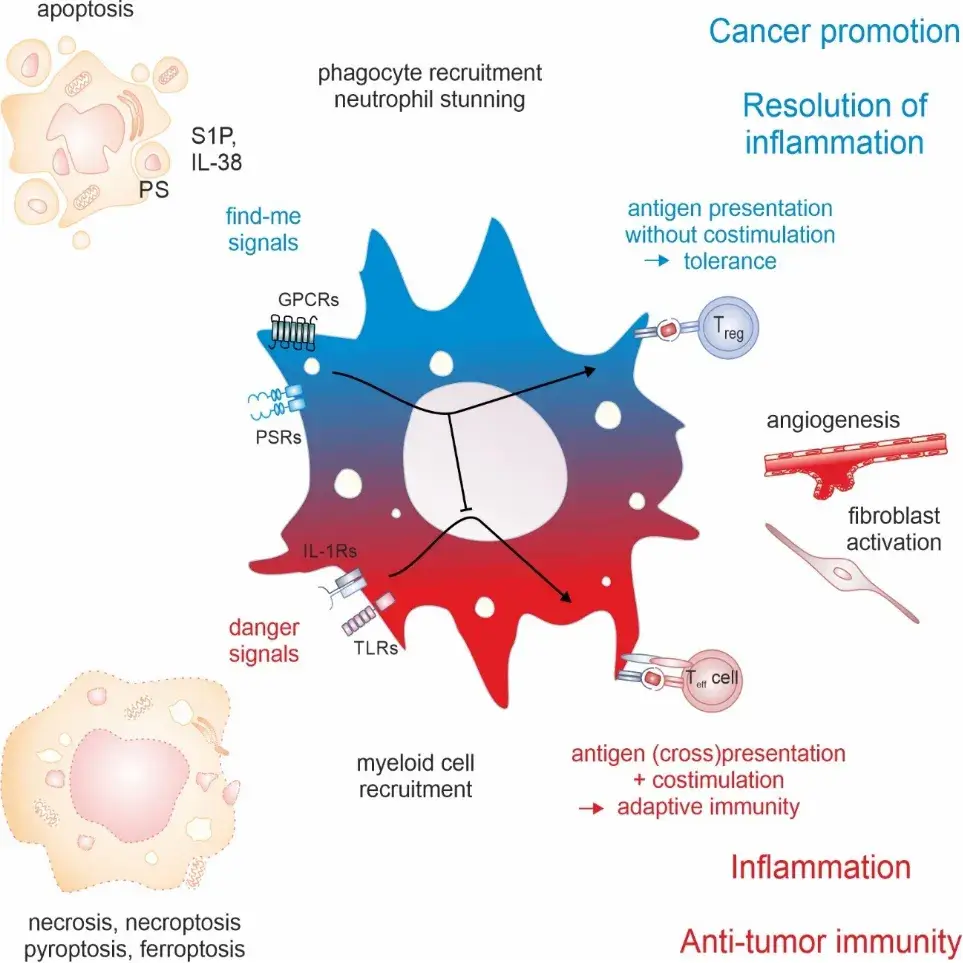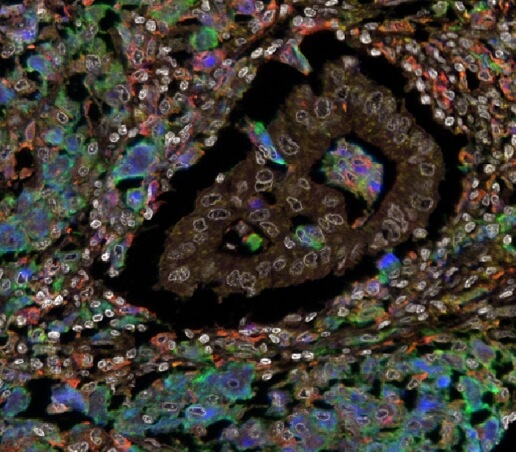A matter of life and death – Dying cell-derived signals shape immunopathology
The interaction of phagocytes such as macrophages with dying cells is a critical step in the decision whether inflammation is resolved or persists. In this context, cell death resulting in plasma membrane disintegration, such as necrosis, necroptosis, and ferroptosis, is thought to trigger inflammation, while apoptotic cells induce a healing and pro-resolving phenotype in macrophages. If macrophage polarization by apoptotic cells is malfunctioning, chronic inflammation or auto-inflammation may occur. In contrast, the continuous interaction of apoptotic cells with macrophages may promote fibrosis and tumor development.
Our mission is to identify and target cell death-associated mechanisms of (failed) tissue homeostasis in order to interfere with the development and progression of chronic inflammation and cancer
(Olesch et al. 2022, Han et al. 2020).


Specific questions
- Formation and signaling of sphingosine-1-phosphate (S1P) in inflammation and cancer
- Interleukin-38 (IL-38) in the balance between cancer and autoimmunity
- Unsaturated fatty acid-derived lipid mediators (e.g., lipoxygenase, prostaglandin synthase products) in inflammation and cancer
- Lipid signals, such as phosphatidylserine (PS) and lipid antigens, that shape macrophage phenotypes in cancer
- Phagocyte phenotypes in murine and human tumors
Contact
